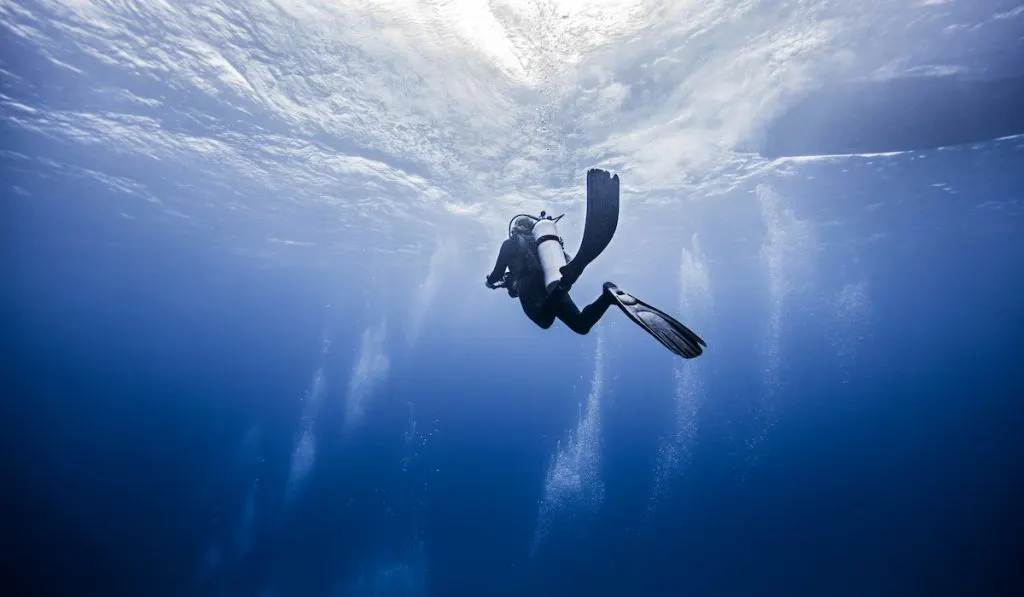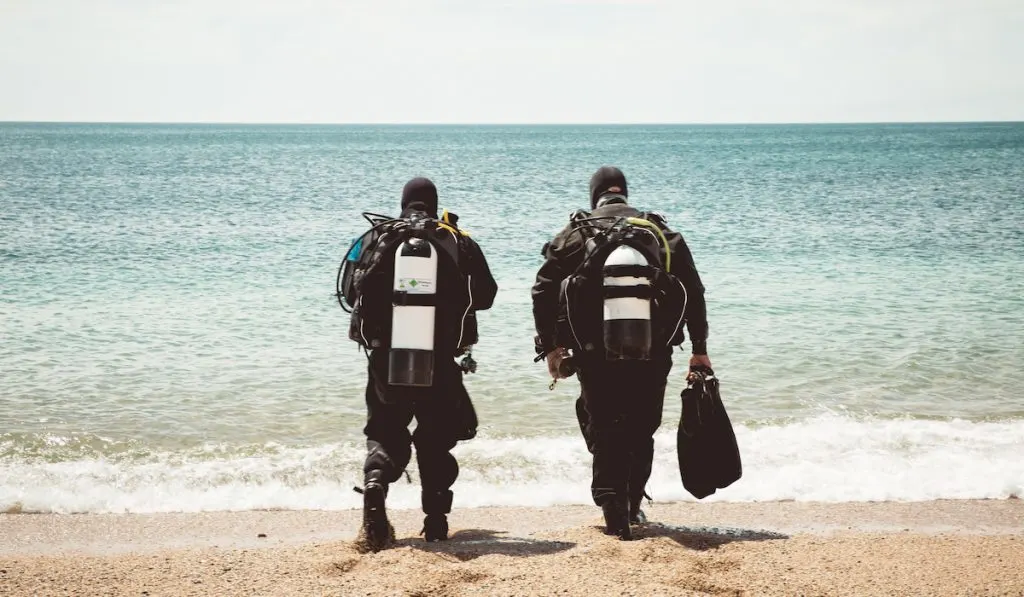Getting nice clothing and equipment designed for triathlons can come with a big price tag. Some stuff is pretty expensive, and if you’re into racing, it’s easy to geek out and blow through a budget on the nicest stuff you can find.
At its finest, triathlon gear can make an event easier and shave meaningful time off your personal best. On a very basic level, you’ll love looking great as you race.
Part of using your gear effectively is finding more than one way you can take advantage of it. For example, people use the same bike for trips on the weekend as they do on the race.
All they have to do is make some adjustments to get it ready for an event. You can use your number belt that has pockets on it as a fanny pack on a hike or family walk.
But what about triathlon wetsuits? These are thin wetsuits designed to allow for maximum freedom of movement in the water all while keeping you warm while you race. Can you use it for anything else? Can you scuba dive in a triathlon wetsuit?
Scuba wetsuits are very different from your typically triathlon wetsuit. Triathlon wetsuits are specialized gear that is expensive and aren’t designed for many of the rigors of scuba diving. They won’t keep you as warm and they’re fragile, so they won’t hold up well if you brush up against coral or friction from tank belts.

Here are some of the reasons why you should never scuba dive in a triathlon wetsuit.
Surfing vs Scuba vs Triathlon
You may have heard from friends or read on a message board that a lot of triathletes wear their surfing wetsuit during races.
Surfing wetsuits are actually a decent crossover for use when it comes to triathlons. They’re not as thin or as pliable as a modern triathlon wetsuit, but they do the job. It’s a good option for people who want to try an event without spending hundreds of dollars on a new wetsuit.
One thing to note, however, is that some surfing wetsuits are too thick. Most races restrict wetsuit thickness to 5mm.
Most surfing wetsuits will meet this requirement, but some designed for surfing in colder climates will be thicker to keep better core body temperatures. The reason being is that surfers are sitting in the water longer and so the neoprene around the core needs to be thicker.

Scuba wetsuits, on the other hand, are designed to take more of a beating. They’re thicker because they have to withstand the pressure of heavy straps and the other gear associated with the sport. They are usually thicker and made from stronger materials. If you think swimming in a surfing wetsuit is tough, give it a try in a scuba wetsuit.
Reasons You Should NOT Scuba Dive in a Tri Wetsuit
There are several reasons you shouldn’t scuba dive in a triathlon wetsuit. Here is a basic overview of some of the most glaring reasons.
Safety Is a Concern
When you’re diving in deep water, you want the safest suit possible. If it’s too thin, you might tear it and that can leave you exposed to very cold temperatures.
There are sharp shells, rocks, coral, and other items underwater that you could brush up against during a dive that could easily cut through a thin triathlon wetsuit. To stay safe, we recommend getting a suit designed for diving.
Temperature Is a Factor
Depending on where you dive and how deep you’re going, you’re going to be dealing with cold temperatures that are likely too much for a tri wetsuit to handle.
Tri wetsuits are designed to be slim so you can stroke in the water with maximum ease. That freedom of motion is nice, but it’s not the priority when you are tens of meters underwater. You want to stay warm.
Dive Wetsuits Help Resist Compression
As you go deeper underwater, you’ll start to feel more and more pressure. Compression is a factor on all dives, and experienced divers know how important it is to properly accommodate for compression.
The thicker material of a diving wetsuit will help a diver feel more comfortable as they do down to deeper depths.
Zipper and Pocket Placement
A lot of surfing wetsuits and tri wetsuits have zippers on the back for comfort and convenience. However, when you’re diving, you’ve got a large, heavy oxygen tank on your back.
If it’s sitting right on the zipper, it’s going to feel annoying. You’ll also have a hard time getting to it if you’re underwater and need to maneuver around the tank.

Scuba Wetsuits are Designed with the Diver in Mind
Any other accessories that go with it will be in position for ease of use and with safety in mind. That’s not something you’ll get with a wetsuit that’s designed for another sport.
Buoyancy Concerns
Both surfing wetsuits and tri wetsuits, to a certain extent, are designed with buoyancy in mind. They want to make it so floating and swimming on the surface is easier.
When you’re diving, though, you don’t want as much buoyancy. YOu need more control over how you move up and down in the water. Diving wetsuits are typically less floatable to help divers get underwater and stay there without a struggle.
While it’s perfectly reasonable to try and find more than one way to use the gear you buy for a triathlon, there are a lot of reasons to leave the wetsuit out of the equation.
Scuba diving is serious business, so taking chances isn’t worth the money saved. Get a suit that’s designed for the sport and you won’t be sorry.
